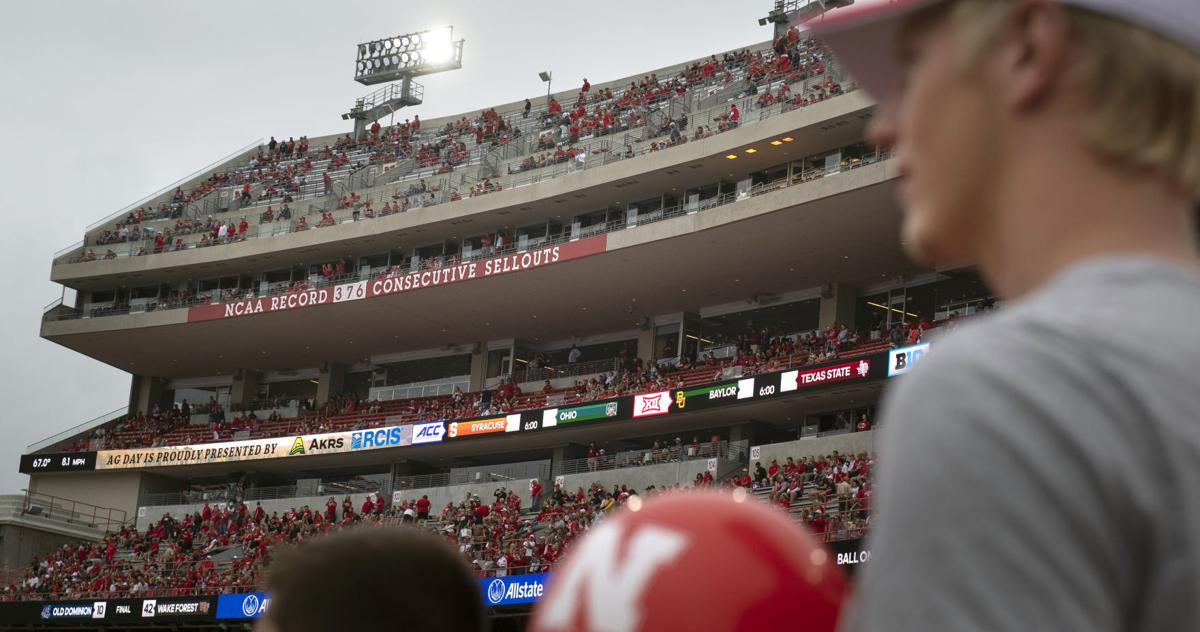
More than 72% of respondents to Nebraska’s massive Memorial Stadium survey have either a positive or neutral attitude toward selling alcohol in the stadium, according to results made public Tuesday afternoon.
The survey, completed by more than 21,000 people, found that 41% of respondents had a “very positive attitude” and 17% had a “somewhat positive” stance toward booze being sold in the stadium, while 14% were neutral. At the same time, 83% of respondents felt positive or neutral about the idea of having alcohol-free sections at the stadium.
Nebraska athletic director Trev Alberts told the Journal Star earlier this year that the research he’s studied says the sale of alcohol is not a major driver of attendance, but the survey found that it would have an “overall net positive impact,” on attendance at Memorial Stadium. Of respondents, 22% said it would increase their attendance while only 10% said it would decrease their likelihood of attending a game.
Perhaps not surprisingly, young people said in higher percentages that alcohol sales at the stadium would increase their likelihood of attending a football game.
People are also reading…
The University’s Board of Regents last month approved a policy change that clears the way for UNL to decide whether it wants to sell alcohol at on-campus athletics events. NU system President Ted Carter said beer sales will not happen at Memorial Stadium in 2022, but the school did have beer sales for the Big Ten Wrestling tournament at Pinnacle Bank Arena last weekend.
Overall, 21,782 people took the survey – more than 6,000 Husker Athletic Fund donors, nearly 4,000 other football season ticket-holders, 8,400 occasional football attendees and more than 3,300 from the general population – about 9.8% of the nearly 223,000 people who received it.
That group spanned age ranges (median 45-54) and income levels (median $100,000-$149,999 annually), and 79% of the responses came from people who live 150 miles or less from the stadium.
“I think Nebraska fans want to be involved. When people in our state feel like they have part ownership of the department, that’s when we’re at our best,” Alberts told the Journal Star on Feb. 25. “Rather than trying to create separation from donors and fans, I would try to bring people together. And we’re not always going to agree; that’s OK.”
Sports gambling was a more divisive survey issue than alcohol sales in the stadium, but 60% of respondents had a positive or neutral view of the potential for sports betting at Memorial Stadium. That issue was more dramatically split between younger people (49% positive for under 25 and 42% for 25-54) and older people (15% positive for 55-74 and 7% positive over 75).
The committee of community members that Alberts assembled to have broad conversations about the stadium’s future met Monday to discuss the data. The results were released to season ticket-holders and the general public Tuesday.
Alberts announced in late January that some of the end zone seats at Memorial Stadium will be widened from 18 inches in time for the 2022 season, which will result in a modest capacity reduction. More dramatic changes are certainly possible in the future.
It’s clear why that happened quickly. Seat comfort (42%) tied cost considerations as the most-cited reason for not attending games, and 77% of respondents cited seat comfort as something that could improve – wireless/mobile connectivity checked in a distant second at 24%. Seat comfort also ranked lowest in a satisfaction ranking of more than 30 gameday features (3.0 on a 1-7 scale). Event staff and ushers (5.9), overall atmosphere (5.9), scoreboards and video boards (5.8), security (5.8) and the radio broadcast (5.7) scored the top five spots.
Nebraska fans were overall interested in various forms of premium seating options that the university proposed in the survey, which could be another signal that an overall reduction in capacity could be a part of future plans.
Along the same lines, 72% of respondents had a positive or neutral view of a seat equity plan at the stadium, which Alberts has talked about since he took over as the athletic director in July. He has noted in the past that 29% of season ticket-holders don’t pay seat-licensing fees, while others may be paying thousands of dollars in fees and posited that more premium seating and a more equitable ticket structure throughout the stadium could make the experience more affordable for more people.
“As we’ve said repeatedly, this whole strategy is not about trying to extract more money from our fans,” Alberts said. “This is about equity. This is about access. You know, we need to protect our business model. But it has never been created to say, ‘OK, where can we find more money?’ That’s not what the objective is.”
Overall, Alberts called the data “fascinating” and expressed excitement about pushing forward with the conversations surrounding the future of the stadium.
“I know you can’t run an athletic department like a poll. But this isn’t my athletic department,” Alberts said. “This isn’t my office. This happens to be the office of the athletic director. I just happen to be here right now.”
Photos: In awe of Memorial Stadium
1923 stadium
A then-Nebraska record crowd of 43,000 packs Memorial Stadium for the Huskers’ 14-7 upset of Notre Dame on Nov. 10, 1923. Some parts of the new stadium were still under construction.
Nebraska State Historical Society
1950 stadium

Aerial view of the UNL Stadium in 1950.
LJS file photo
1959 stadium

Aerial view of the University of Nebraska-Lincoln campus, March 23, 1959.
Nebraska State Historical Society
Memorial Stadium 1965

Seating beyond the north and south end zones pushed capacity to nearly 53,000 seats in 1965.
LJS file photo
1971 stadium

Aerial view of the UNL Stadium on 9/23/1971.
LJS file photo
1991 stadium

Aerial view of Memorial Stadium in 1991.
LJS file photo
Stadium in 1994

The pumped crowd for the UCLA game in 1994.
LJS file
1999 stadium

A new skybox towers over a new playing surface as the usual sea of red takes in Nebraska’s first home game of the 1999 season.
ERIC GREGORY/Journal Star file photo
2005 stadium

Aerial of Memorial Stadium, Ed Weir Track and site of the new Tom and Nancy Osborne Athletic Complex as seen from the east side in 2005.
ERIC GREGORY/Journal Star file photo
2006 stadium

Memorial Stadium and environs in 2006.
ERIC GREGORY/Journal Star file photo
2008 Spring Game crowd

More than 80,000 fans were on hand as the Red and White teams entered Memorial Stadium for the start of the Spring Game in April 2008.
TED KIRK/Lincoln Journal Star file photo
2009 stadium

A sellout crowd watches a fireworks display in Memorial Stadium in Lincoln, Neb., Sept. 26, 2009, as they mark the 300th consecutive sellout, an NCAA record, following Nebraska’s 55-0 rout of Louisiana-Lafayette.
AP file photo
Memorial Stadium 2009

The University of Nebraska Cornhuskers sold-out Memorial Stadium for the 300th consecutive time, Saturday, Sept. 26, 2009.
LJS file photo
Red-White Spring Game, 4.16.2011

A crowd of more than 66,000 attended the Red-White Spring Game at Memorial Stadium, Saturday, April 16, 2011.
Lincoln Journal Star file photo
Aerial of stadium in 2012

Memorial Stadium (top) and Pinnacle Bank Arena looking northeast, April 25, 2012.
GWYNETH ROBERTS/Lincoln Journal Star file photo
2013

Craig Chandler, University Communications
Red-White Spring Game, 4.11.15

Husker fans turned out in force to watch the debut of the Riley era at the annual Red-White Spring Game 2015 at Memorial Stadium. More than 60,000 tickets have already been sold for this year’s game on April 15.
GWYNETH ROBERTS/Lincoln Journal Star file photo
2015 stadium

Digital Sky’s drone got this picture from Memorial Stadium on July 27, 2015.
Digital Sky/Courtesy photo
Husker fans, 11/24/17

Husker fans release balloons following the Huskers’ first-quarter touchdown against Iowa in November 2017.
Journal Star file photo
Ohio State vs. Nebraska, 10/14/17

The Cornhusker Marching Band performs their pregame routine at Memorial Stadium, on Saturday, Oct. 14, 2017.
KAYLA WOLF, Journal Star
Red-White Spring Game, 4/21/18

A packed stadium watches the first half of the Red-White Spring Game on Saturday, April 21, 2018, at Memorial Stadium.
KAYLA WOLF, Journal Star file photo
2019 fireworks

The Nebraska State Patrol captured this photo Sept. 28, 2019, of the stadium as fireworks went off before the Husker game.
Victoria Ayotte Brown
Guard flyover at stadium – 2019

The Nebraska National Guard did a flyover of Memorial Stadium on Nov. 16, 2019, with two Blackhawk helicopters.
Nebraska National Guard
2019 stadium

Memorial Stadium is shown with colorful skies creeping in during a 2019 game.
UNIVERSITY OF NEBRASKA
Contact the writer at pgabriel@journalstar.com or 402-473-7439. On Twitter @HuskerExtraPG.
- • Texts from columnists
- • The most breaking Husker news
- • Cutting-edge commentary
- • Husker history photo galleries
Get local news delivered to your inbox!

Must See
-
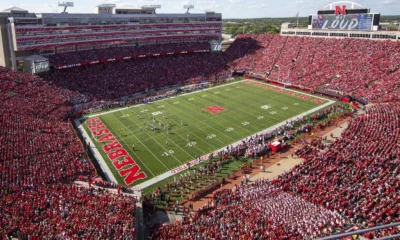

Featured
/ 1 day agoFan Guide to the Red-White Spring Game
Nebraska fans are set for a thrilling Saturday at Memorial Stadium for the annual...
-
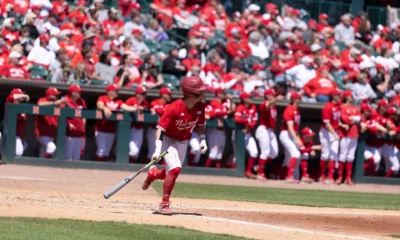

Baseball
/ 5 days agoHuskers Command Series Victory with a Resounding Win
In a spectacular show of force, Nebraska equaled its highest run tally of the...
-
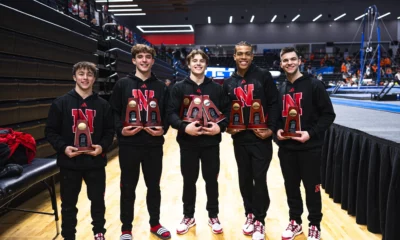

Men's Gymnastics
/ 6 days agoHuskers Garner Five All-Americans at NCAA Gymnastics Finals
In Columbus, Ohio, the Nebraska men’s gymnastics team concluded their season with an impressive...
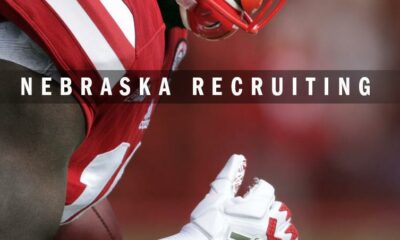

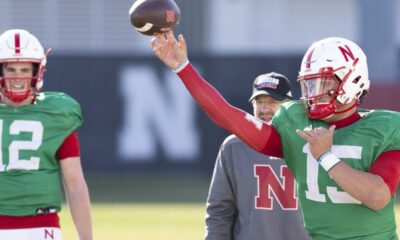

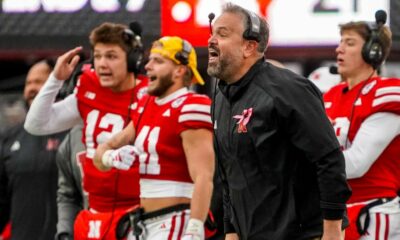

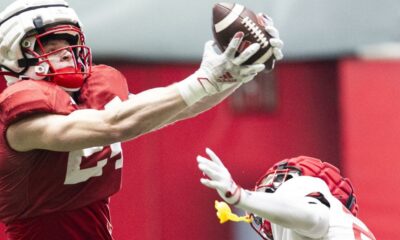

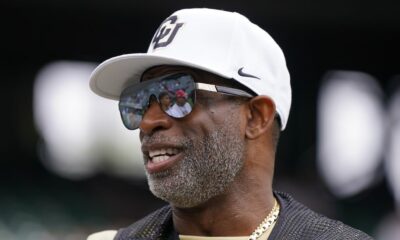



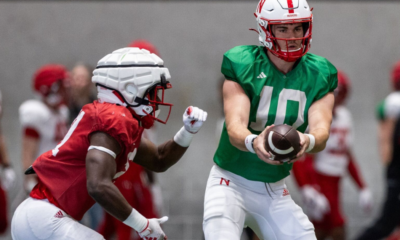

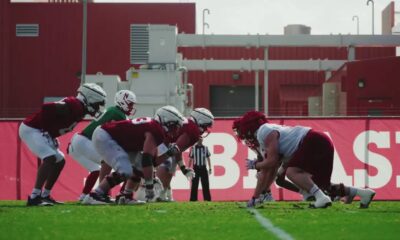

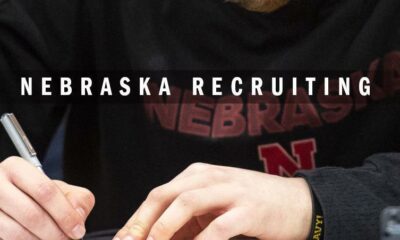





You must be logged in to post a comment Login